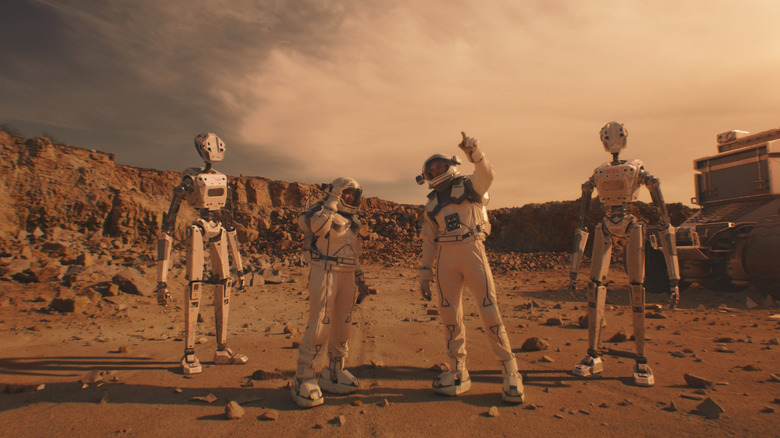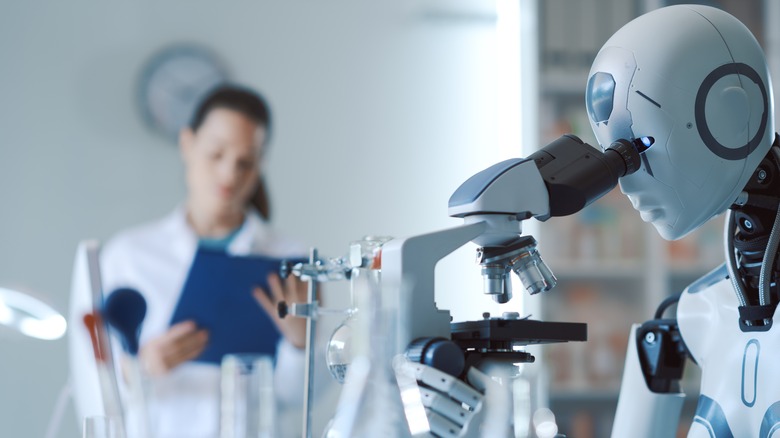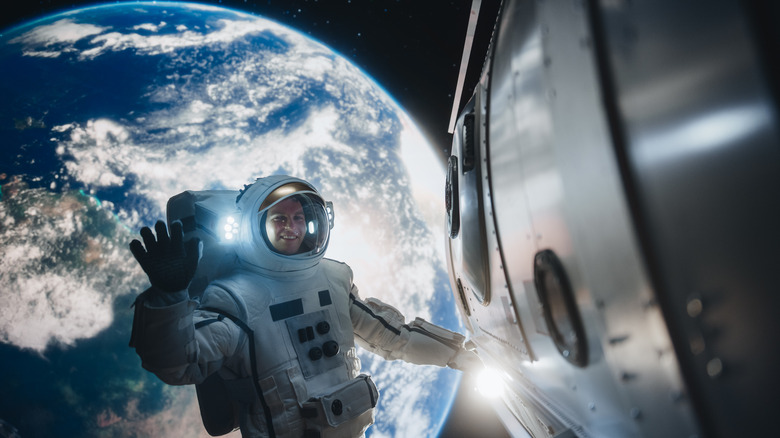NASA Wants To Send AI Astronauts To Colonize Mars - Here's How
When Philip K. Dick imagined artificial beings in his book "Do Androids Dream of Electric Sheep," the question was whether machines could think and feel like humans. Today, NASA is posing a related, but more practical question: Could superhuman AI-powered machines take humanity's place on the first missions to Mars?
Because human astronauts are fragile, future expeditions may rely on highly advanced robots, guided by artificial intelligence. These synthetic explorers wouldn't need food, water, oxygen, or radiation shielding. They could take care of the spaceship and sleeping humans on their way to Mars. They could withstand the harsh Martian environment, construct shelters, mine resources, and prepare the infrastructure before human arrival on the red planet. The technology is closer than it would seem. NASA's Autonomous Systems and Operations program has already demonstrated how AI tools can manage spacecraft, assist crews, and enable autonomous operations during communication delays.
Using AI astronauts is very compelling as they would reduce the costs of such missions and spare human crews from many of the deep-space travel risks. But their potential also raises philosophical dilemmas about the role of humans in exploration. If machines are the first to step on the Martian soil, what does that mean for the human dream of space exploration?
Space travel in the age of AI
Pascal Lee, a planetary scientist with the SETI Institute and the Mars Institute, has long studied the challenges of sending humans to the red planet. His perspective carries weight not only because of his expertise in planetary geology and exploration strategy, but also because he has spent decades leading Mars analog missions in extreme environments on Earth, from the Arctic to the high deserts. These terrestrial experiments have highlighted just how dangerous and complex a real Martian expedition would be.
Lee suggests that "artificial super astronauts" could offer the most practical path to establishing an early foothold on Mars. These robotic explorers, enhanced with advanced AI, would be unlike traditional rovers with remote control systems currently on the Martian surface. These machines could act autonomously, making decisions in real-time despite communication delays. They could also endure the harsh environment of the red planet that would quickly wear down a human crew. However, Lee's speech, "Humans to Mars in the Age of AI," during the Space Robotic Workshop held in July 2025, emphasizes that this is not about replacing humans, but about acknowledging that colonizing Mars will be a century-long effort with machines serving as both pioneers and caretakers of that dream.
NASA's trajectory increasingly reflects this vision. The agency already put robotic programs into place, from the Valkyrie humanoid platform to experiments with AI assistants (such as Astrobee aboard the International Space Station). NASA is deliberately moving towards integrating machine intelligence into mission planning. While the dream of a human footprint on Mars remains, the practical path forward may involve silicon-based pioneers arriving first, preparing the grounds for the fragile species that built them.
Rethinking space exploration
The prospect of sending machines instead of people to Mars challenges long-held assumptions about future space exploration. For generations, the image of a human astronaut planting a flag on alien soil has symbolized progress. Yet as AI matures, we need to reimagine our path towards becoming a spacefaring civilization. Exploration is no longer solely about human endurance, but about how we design and empower intelligent systems to act as extensions of ourselves.
Pascal Lee frames this shift in profoundly human terms. He envisions android explorers not as our replacements, but as our descendants. They would be technological children created by humanity to venture forward where we cannot safely go. Just as parents send their children into the world with hope and trepidation, humanity could send AI astronauts towards Mars with a sense of pride and responsibility. Their success would reflect our ingenuity. Their struggles would mirror our limitations, and their presence on an alien world would keep the dream of human arrival alive. In this sense, the story of colonizing Mars becomes not only a test of technology but also a reflection of how we define exploration, kinship, and the future of our species.


